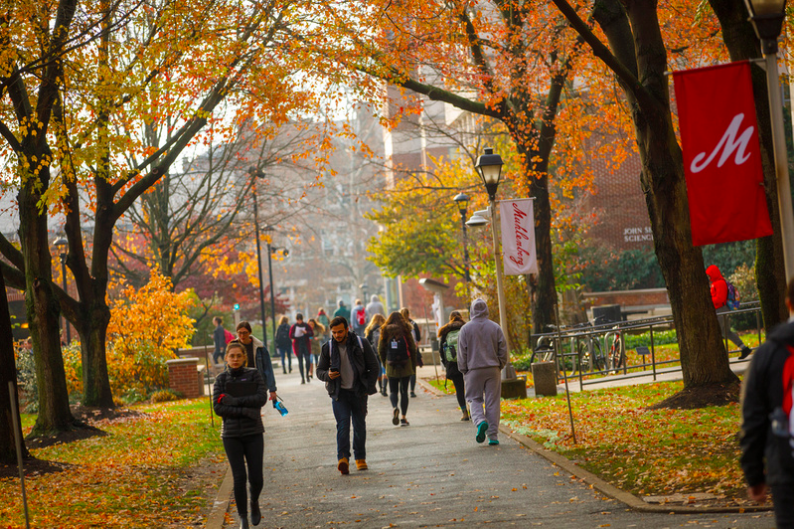Words do not exist in a vacuum. Inevitably, people are influenced to use some words or not by the societal structures in which they live. Conversely, those words that people choose to use further affect and perpetuate those same social structures. The structural effect of language, especially when it comes to biased language perpetuating stereotypes and continuing legacies of harm and dehumanization, cannot be understated.
On Feb 25., Muhlenberg College held a dialogue about biased language that was so well attended that staff had to bring in extra tables and chairs to accommodate the volume of participants. At this event, Emanuela Kucik, Ph.D., assistant professor of English and Africana Studies, emphasized that biased language is consistently shown to be a first symptom of a society moving toward genocide. Dehumanization is the first step to justifying violence, and biased language is just one way in which people work to make each other less than.
Muhlenberg has had at least two incidents of explicitly racially biased language that have been widely discussed on campus in the last year. The Weekly found many of the stories shared at this event illuminating and appreciate the willingness of community members to share their experiences. Still, meaningful action and change have yet to be emphasized in this campus conversation. Some stated attendee takeaways were that policy must be enacted and people of privilege must be willing to stop engaging in harm for things to get better.
This event was optional, and so was presumably largely attended by those students who are already thinking about the power dynamics and harm involved in using biased language — but the people who use slurs and other bias language on our campus likely aren’t attending events like this. Talking about how both implicit and explicit bias is harmful to already marginalized students can be helpful to foster a more inclusive community, but how can we do this if we aren’t also addressing recent racially charged incidents? If this event has been in the works for a year, why weren’t the impacts of these recent campus discussions assessed? How much does a campus-wide email and an optional dialogue actually do? We don’t know the answers to these questions, but with privilege comes the responsibility to ask what more you can be doing, and we at The Weekly aren’t sure if we as a College are doing enough to center the voices of marginalized students and reach those who need to hear messages against hate.






















